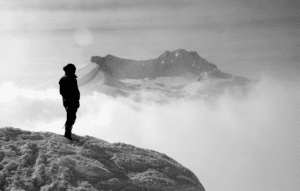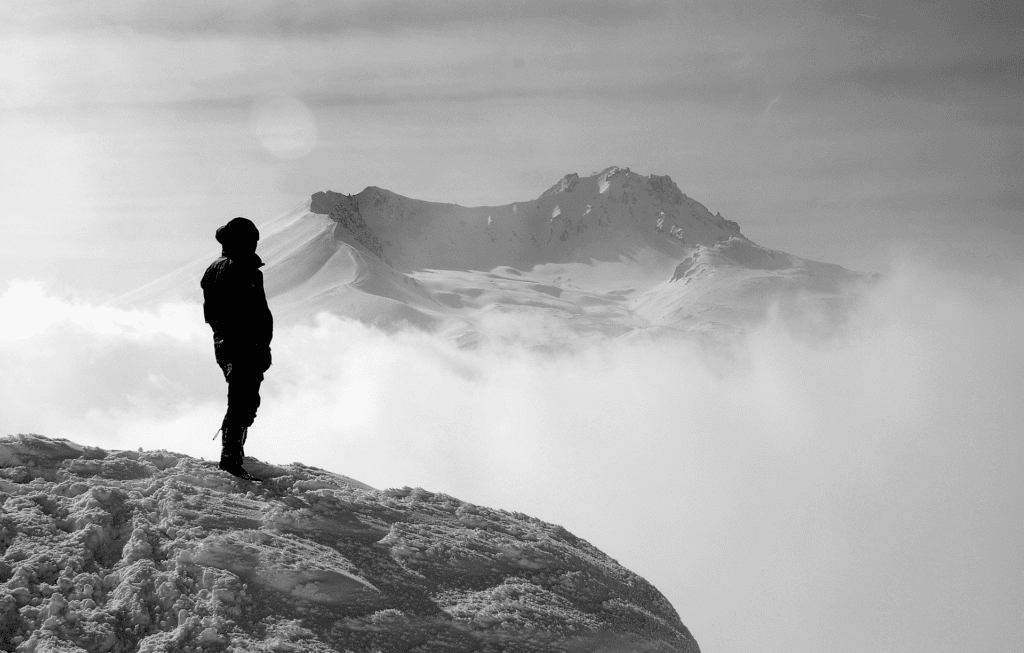CEO Coaching: You Found the Mountaintop. Now What?
 I heard an interview with a local chef on NPR the other day. He was lucky in his early days to study under Daniel Boulud, a world-famous chef and restaurateur. The local chef shared a few things he learned, notably to not rush to the top of the mountain but to enjoy the journey.
I heard an interview with a local chef on NPR the other day. He was lucky in his early days to study under Daniel Boulud, a world-famous chef and restaurateur. The local chef shared a few things he learned, notably to not rush to the top of the mountain but to enjoy the journey.
In the restaurant world, “the top” pertains to not only skill but also title and recognition, just like in business. Michelin stars or James Beard Awards for the crème de la crème. (It’s occasionally possible, unfortunately, for someone to gain title and fame in business with little skill. All hat and no cattle, so to speak.)
His point was that when you reach the mountaintop, you must go down.
I appreciate this perspective about not rushing the process. However, I don’t believe that reaching the top of whatever quest you’re on means that it’s all downhill from there.
Staying atop the mountain is no easy feat. And finding bigger mountains may be interesting, but eventually you’ll fall on the way up or run out of mountains to climb. Then what?
My limited exploration of Buddhism hasn’t led me to believe “the one” answer to this question, but my 40 years of leadership roles and coaching executives has given me some insight. Insight No. 1 is that there’s no one right answer. Here are a few thoughts.
I have a New Yorker cartoon on my desktop that shows an old monk and a young monk sitting next to each other (Lotus Pose, of course). The young monk is looking confused, and the old monk says to him, “Nothing happens next. This is it.” Perhaps if you reframe your situation, you might be joyful rather than anxious. (Reframing has to do with exploration, gratitude, and examining your values.)
If “this is it” doesn’t sit well with you, then find those things in life that give you the most joy and do more of them. It might be volunteer work, fly-fishing, or more family time. (And yes, it might be a bigger mountain, but be careful.) It might mean doing more work or leaving the work world altogether.
The trigger is the answer to the question: “How do you define yourself?” The real answer, not the one you use at a cocktail party or business function, not others’ definition of you, but the one you use with someone you trust. Someone who doesn’t judge.
If your answer is largely about your job title, you may be successful, but I suspect one day it won’t be satisfying. Although I admire drive and intensity, those in this state aren’t always fun to be around because it’s so much about control, and they have little depth. If they stay in this “state” until the end of their career (or life), they usually end up being miserable. (By the way, “failing” is often part of the journey and not a title—that is, you aren’t a failure.) Your job isn’t the entirety of who you are.
The most joyful leaders I encounter, the ones who are most enjoyable to be around, are those who’ve answered—or are in the process of answering—the question of who they are with more insight and a wider lens. Sometimes it takes months or years. Give yourself time, but start!

coaches CEOs to higher levels of success. He is a former CEO and has led teams as large as 7,000 people. Todd is the author of, Never Kick a Cow Chip On A Hot Day: Real Lessons for Real CEOs and Those Who Want To Be (Morgan James Publishing).
Connect with Todd on LinkedIn, Twitter, call 303-527-0417 or email [email protected].
